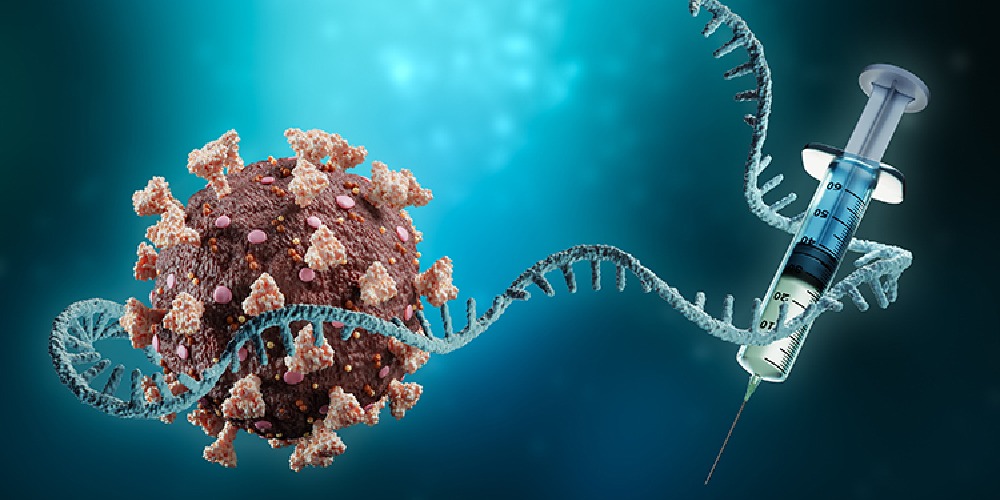“mRNA TECHNOLOGY is a watershed moment for the future of vaccines. The same technology can be used to prevent dozens of otherwise untreatable autoimmune diseases. The same manufacturing facility and technology can be used to produce highly expensive biological drugs which are eating up a sizeable portion of national health budgets. All this is possible and I have access to the technology which I am willing to transfer to developing countries. There is a legal way to overcome the patented technologies in times of public health emergencies. Just need an interested government to ensure the ease of business by removing unnecessary bureaucracy, and a willing and daring private sector partner. To begin with, this would help in producing Covid-19 vaccines to fill the access gap and overcome the problem of vaccine inequity. It will also help in developing a knowledge economy around a biotechnology sector, skilled human resources and inevitably would help develop regulatory pathways in accordance with international standards for biotechnology products. All this is possible in a very short time with very few resources.”
The above quote cannot be ignored when you know who is saying it.
With more than half a century of experience of learning, teaching, researching, innovating, manufacturing, patenting and consulting in the pharmaceutical and biotechnology fields and advising the likes of FDA, the European Medicines Agency and WHO on biosimilars development, manufacturing and regulation, Prof Sarfaraz Khan Niazi is always at the frontiers of knowledge and pushing the boundaries to bring fertile imaginations to the realm of the possible.
He is an adjunct professor of pharmaceutical sciences at the University of Illinois and the University of Houston and is considered a thought leader on biopharmaceutical sciences. He is also a patent lawyer and an entrepreneur who has established and sold profitable companies in the US. On the innovation side, he has more than 170 patents in the US Patent and Trademark Office on diverse technologies ranging from the fast-track aging of wines to aerospace to gene-sequencing to coffee mugs to hats. He also assists scientists and institutions unable to afford filing US patents on a gratis basis.
Some individuals are science and art personified.
Some people are larger than life. They become a phenomenon unto themselves — apni zaat main anjuman. Prof Niazi is one of those giants of our times. Forbes characterises him as “the most interesting man revolutionising the health world”.
Like father like son: Niaz Fatehpuri (1884–1966) was an out-of-the-box intellectual and a great scholar in his time — an author of more than two dozen books and the founder of the oldest and the most prestigious literary Urdu magazine Nigar. The Padma Bhushan was conferred upon him for his services to Urdu in 1962 by the government of India. Sarfaraz Khan Niazi was awarded the Sitara-i-Imtiaz by the government of Pakistan in 2012.
Pursuing this genetic tendency, Prof Niazi has also made great contributions in literature. He started out as a poet in Urdu but says that once he properly read Ghalib he realised he couldn’t beat him and that all that needed to be said, Ghalib had already said, and most eloquently too. Instead, he then decided to focus on introducing Ghalib’s work to the English-speaking world and ended up producing a magnum opus of the English translation of all Ghalib’s Urdu and Persian ghazals — a labour of love that expanded over the decades and is continuing. It is a treat to listen to his explications of the wisdom of Ghalib’s love poems in Urdu and Persian and the most exquisite translations in English.
A prolific writer, his first book was published when he was 26 years old. Now he is the author of more than 50 books and well over 100 research papers of a high standard. Apart from purely technical works, he has also written on popular consumer health issues including topics as varied as the benefits of fish oil and the hazards of milk to the philosophy of human belief. He has a keen eye as a photographer of people, places, paradoxes and pluralities and has a vast collection. He is a regular blogger, radio-show host, traveller and much more. At 73, he is so full of energy and ideas that it is tough to keep pace with him. Young at heart and a chronic optimist, the inspiration he emits is highly contagious.
Prof Niazi has also written around 10 textbooks on pharmaceutical sciences including the six-volume Handbook of Pharmaceutical Manufacturing Formulations, Handbook of Bioequivalence Testing and Biosimilars and Interchangeable Biologics: Strategic Elements. He coined the term ‘biosimilar’ in his various discussions with the FDA. The term is like a generic version of an originator biopharmaceutical but much more difficult to produce as unlike chemical medicines biological medicines are much bigger and more complex molecules. In today’s world, more than 70 per cent of new medicines are of biological origin and this is the future of medicine. But originator biologicals (vaccines and curative medicines) are extremely expensive and not affordable in developing countries. Dr Niazi’s mission is to improve developing countries’ access to these medicines; according to him, the best way would be for these countries to produce these medicines themselves, and it is possible.
The emergence of mRNA has made it more possible. The Covid-19 pandemic has made it possible for this 60-year-old technology to be harnessed into a vaccine as during the fast-spreading infection it was possible to test the efficacy and safety of the vaccine in a sample size of 30,000 to 40,000 subjects. The technology provides the most efficient way to produce the vaccine. The mRNA dose ranges from 20-100 microgram, allowing smaller-scale manufacturing to provide vaccines to millions. At about 33 doses per milligram, one kilogram yield gives 33 million doses of the vaccine.
The emergence of the messenger ribonucleic acid ie mRNA technology is considered to be as big a development as Edward Jenner’s development of the first vaccine in 1790s. It can be of tremendous help to countries like Pakistan to leapfrog in biotechnology space that we have tragically lagged behind by missing many opportunities and not paying policy attention to this critical area. Are we ready?
The writer is a former SAPM on health, professor of health systems at Shifa Tameer-i-Millat University and WHO adviser on UHC.


